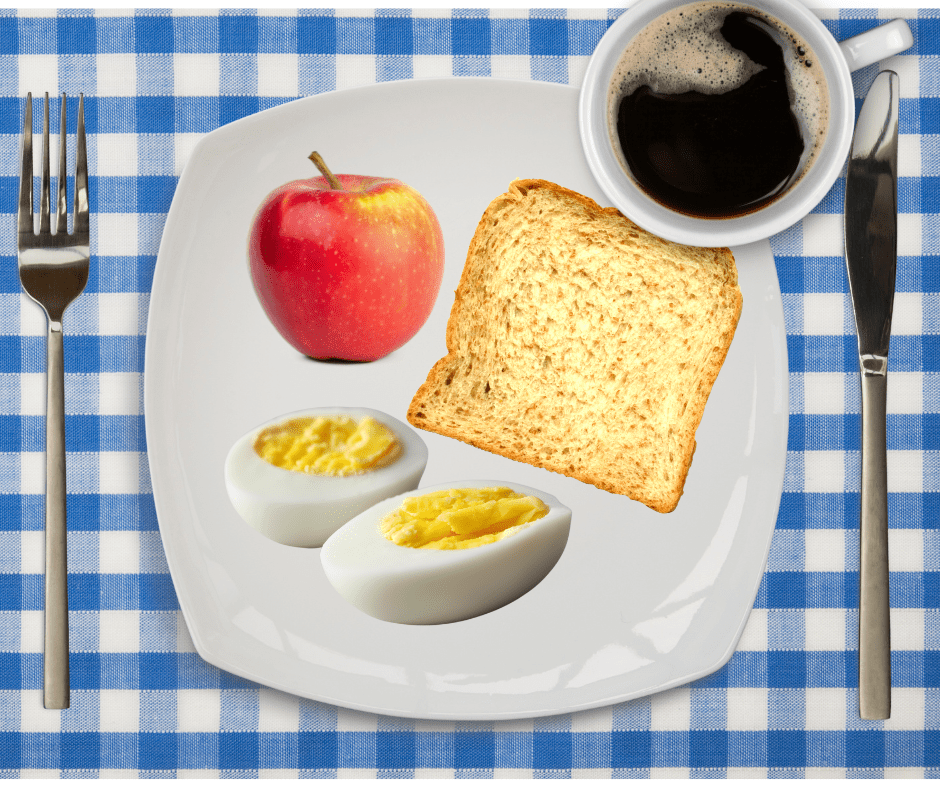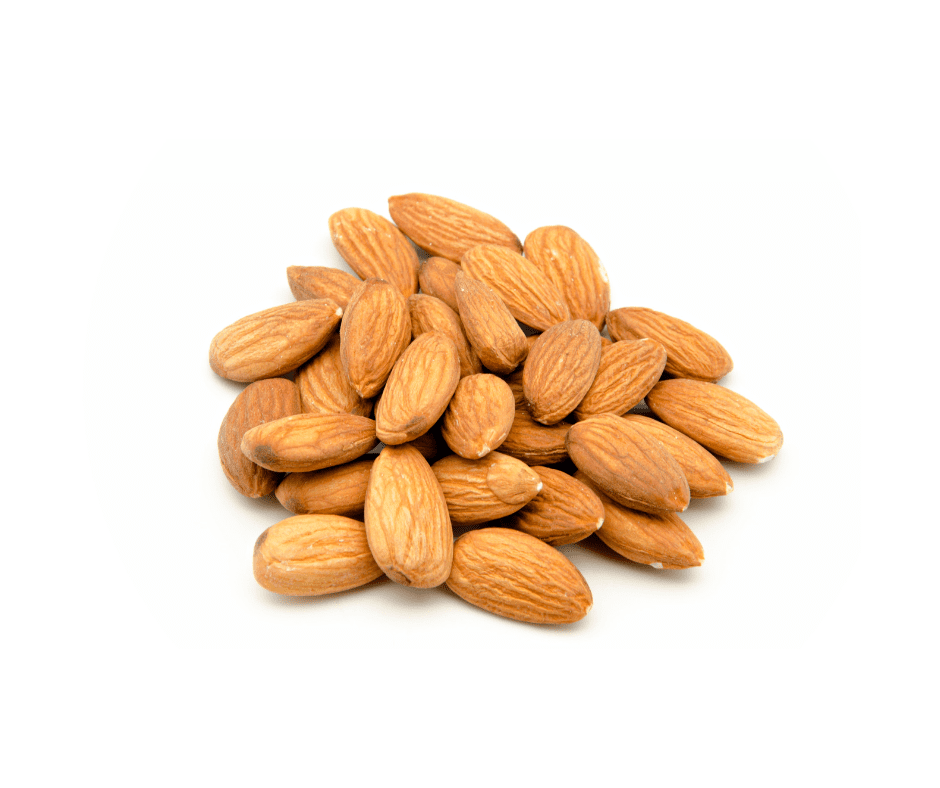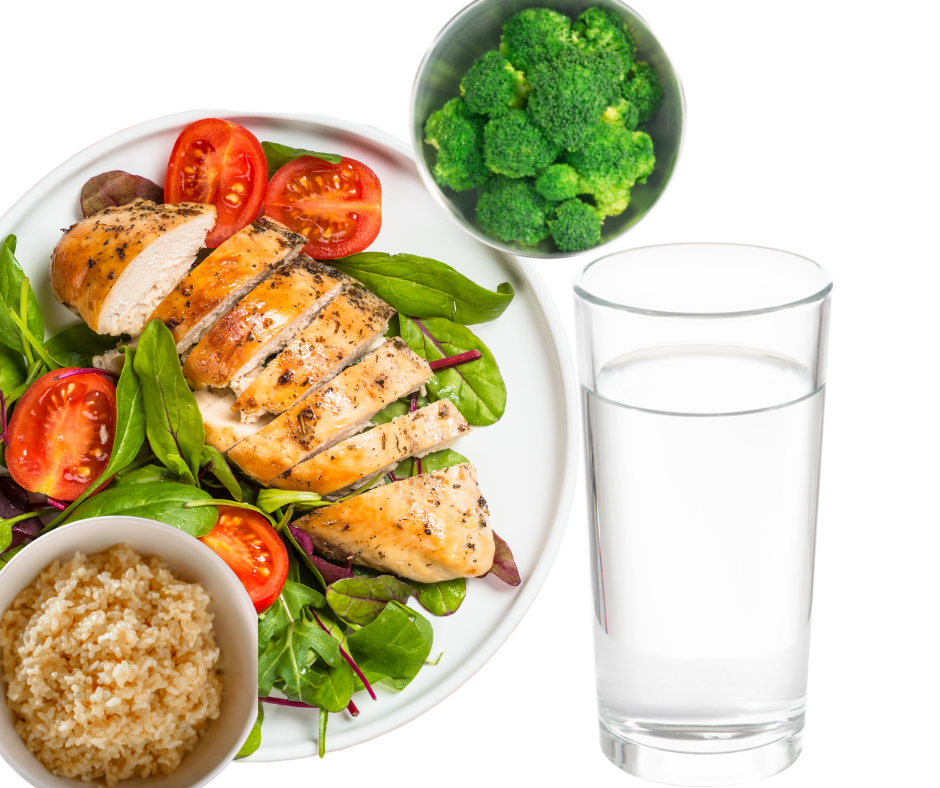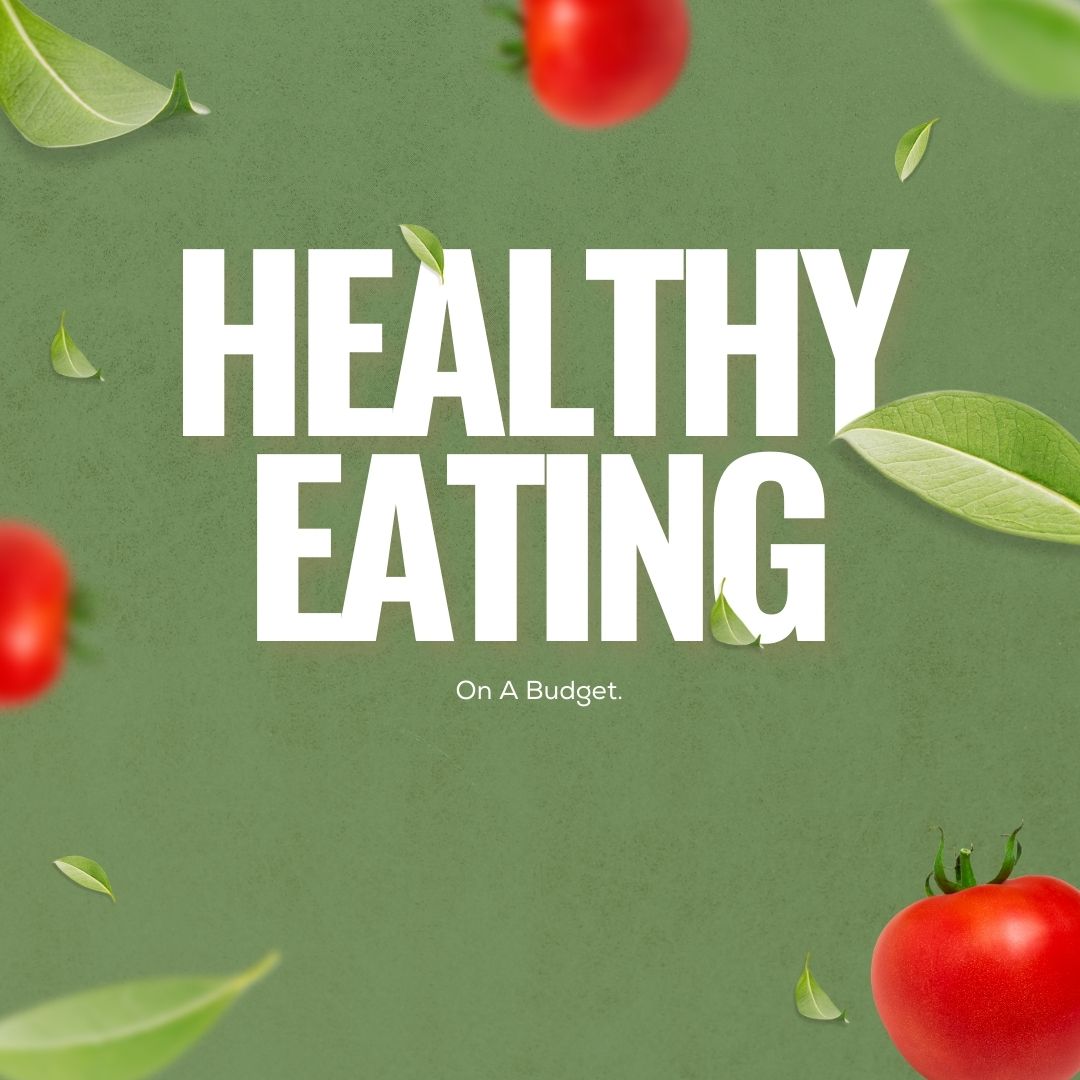For people with diabetes (some are my loved ones), a healthy meal plan is essential to manage blood sugar levels and prevent complications. A well-designed meal plan can help keep blood glucose levels stable throughout the day, provide the nutrients for optimal health, and promote weight management. A balanced plan should include a variety of nutrient-dense foods, such as whole grains, lean protein, vegetables, fruits, and healthy fats. Portion control is also important, as too much of any food can cause blood sugar levels to rise.
One-week healthy meal plan for someone who has diabetes:
Monday
Breakfast: 
- 1 small apple
- 2 boiled eggs
- 1 slice of whole-grain toast
- 1 cup of unsweetened tea or coffee
Snack: 
- 1 small handful of almonds
Lunch: 
- Grilled chicken breast
- 1 cup of brown rice
- 1 cup of steamed vegetables (broccoli, carrots, and bell peppers)
Snack: 
- 1 medium-sized orange
Dinner: 
- Grilled salmon
- 1 cup of quinoa
- 1 cup of steamed vegetables (asparagus, zucchini, and cherry tomatoes)
Tuesday
Breakfast:
- 1 cup of low-fat yogurt
- 1 cup of sliced strawberries
- 1 slice of whole-grain toast
- 1 cup of unsweetened tea or coffee
Snack:
- 1 small carrot with hummus
Lunch:
- Turkey wrap (whole-grain tortilla, turkey breast, avocado, spinach leaves)
- 1 small side salad with balsamic vinaigrette dressing
Snack:
- 1 small apple
Dinner:
- Grilled chicken breast
- 1 cup of roasted sweet potatoes
- 1 cup of steamed vegetables (green beans and mushrooms)
Wednesday
Breakfast:
- 1 small banana
- 2 boiled eggs
- 1 slice of whole-grain toast
- 1 cup of unsweetened tea or coffee
Snack:
- 1 small handful of walnuts
Lunch:
- Tuna salad (tuna, lettuce, tomatoes, cucumbers, and low-fat dressing)
- 1 small side salad with balsamic vinaigrette dressing
Snack:
- 1 small pear
Dinner:
- Grilled salmon
- 1 cup of quinoa
- 1 cup of roasted vegetables (cauliflower, Brussels sprouts, and onions)
Thursday
Breakfast:
- 1 cup of low-fat Greek yogurt
- 1/2 cup of blueberries
- 1 slice of whole-grain toast
- 1 cup of unsweetened tea or coffee
Snack:
- 1 small handful of cashews
Lunch:
- Veggie burger (whole-grain bun, veggie patty, lettuce, tomatoes, and low-fat dressing)
- 1 small side salad with balsamic vinaigrette dressing
Snack:
- 1 small orange
Dinner:
- Grilled chicken breast
- 1 cup of brown rice
- 1 cup of steamed vegetables (carrots, green beans, and mushrooms)
Friday
Breakfast:
- 1 small apple
- 2 boiled eggs
- 1 slice of whole-grain toast
- 1 cup of unsweetened tea or coffee
Snack:
- 1 small handful of almonds
Lunch:
- Turkey wrap (whole-grain tortilla, turkey breast, avocado, spinach leaves)
- 1 small side salad with balsamic vinaigrette dressing
Snack:
- 1 medium-sized orange
Dinner:
- Grilled salmon
- 1 cup of quinoa
- 1 cup of roasted vegetables (asparagus, zucchini, and cherry tomatoes)
Saturday
Breakfast:
- 1 small banana
- 1 cup of low-fat yogurt
- 1 slice of whole-grain toast
- 1 cup of unsweetened tea or coffee
Snack:
- 1 small carrot with hummus
Lunch:
- Tuna salad (tuna, lettuce, tomatoes, cucumbers, and low-fat
mayoclinic.org/diseases-conditions/diabetes/in-depth/diabetes-diet/art-20044295(opens in a new tab)
Flatter Yourself Newsletter Form
"*" indicates required fields
Sources and references for the meal plan:
- American Diabetes Association. (n.d.). What can I eat? Retrieved from https://www.diabetes.org/nutrition/what-can-i-eat.
- Mayo Clinic. (2021, February 17). Diabetes diet: Create your healthy-eating plan. Retrieved from https://www.mayoclinic.org/diseases-conditions/diabetes/in-depth/diabetes-diet/art-20044295.
- Harvard Health Publishing. (2018, May). The best foods for diabetes. Retrieved from https://www.health.harvard.edu/nutrition/the-best-foods-for-diabetes
Please note that the meal plan is only a general guide and should be tailored to an individual’s specific nutritional needs, lifestyle, and preferences. It’s always best to consult with a registered dietitian or healthcare provider for personalized nutrition advice.




